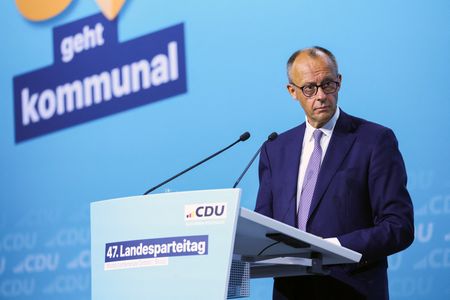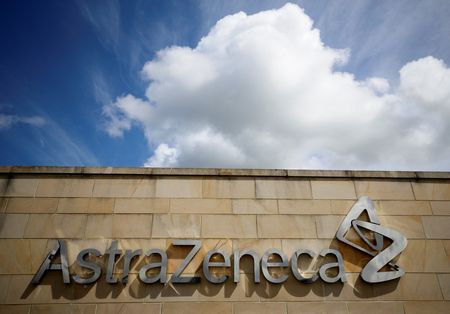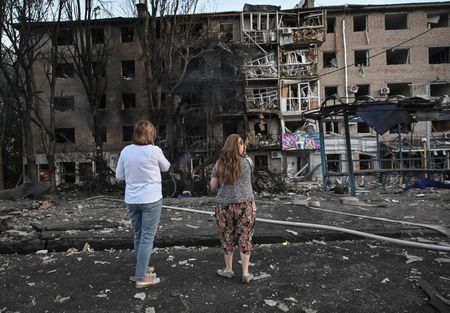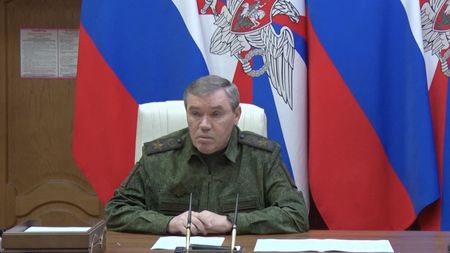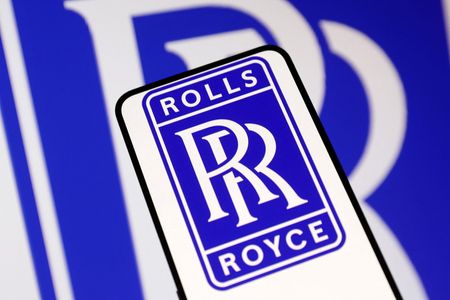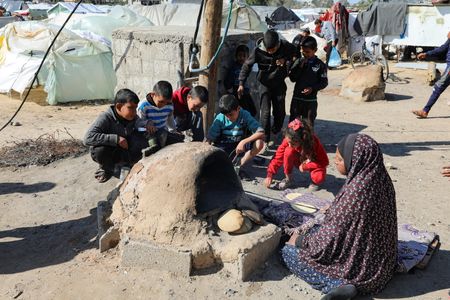By Jan Lopatka
(Reuters) -Slovak refinery Slovnaft has secured alternative crude supplies to maintain diesel exports to the Czech market after the June 5 expiry of an EU exemption that allowed it to export products derived from Russian oil, parent company MOL said.
Slovnaft exports about half of its production, and has been using primarily Russian oil supplied via the Druzhba pipeline, using a temporary exemption from EU sanctions which allowed it to process the oil for the domestic and export markets.
After June 5, it will not be allowed to export Russian oil-based products, but can still use them on the domestic market.
The 124,000 barrels-per-day Slovnaft refinery has made technological changes and secured alternative crude supplies to continue exporting to the Czech Republic, MOL said.
“Slovnaft will continue to supply the Czech market even after the derogation expires, thanks to… investments delivered by MOL Group in recent years to make its refining technology more flexible,” it said in emailed responses to Reuters questions.
Imports from Slovakia account for about 10% of overall Czech demand for diesel, which totalled 5.4 million metric tons in 2024, according to the Czech Statistical Office.
Slovnaft processed 5.3 million tons of oil in 2023, the last data available, of which 0.8 million were non-Russian. It imports alternative sea-delivered crudes through the Adria pipeline from Croatia.
“MOL Group is constantly looking for alternative supply solutions and routes,” MOL said.
“For example, the oil trading agreement between MOL and (Hungarian energy firm) MVM could increase the volume of Azerbaijani crude oil imported into the region by 160,000 tons per year.”
MOL did not specify how the balance of Druzhba and Adria flows to Slovnaft was expected to change from next month.
Slovakia imported 4.83 million tons of oil in 2024, out of which 4.18 million tons were from Russia, according to data from the Slovak Statistical Office.
Slovakia and Hungary have been keen to keep oil and gas imports from Russia, thanks to derogations from EU sanctions taking into account bottlenecks on other supply routes, and have resisted EU plans to scrap the exemptions.
(Reporting by Jan Lopatka in Prague; Editing by Emelia Sithole-Matarise)


